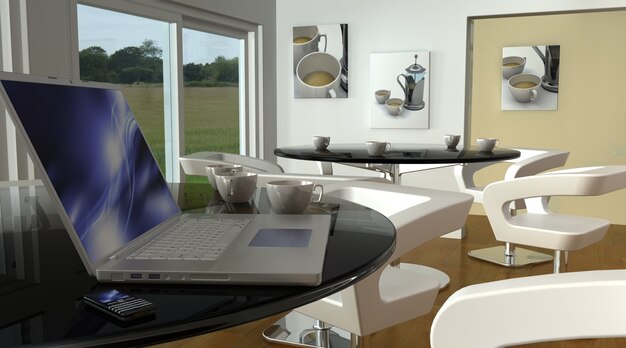
Sponsored article
In today’s rapidly evolving business landscape, companies are continuously seeking innovative ways to optimize their workspaces. Modular containers have emerged as a groundbreaking solution, offering unmatched flexibility and efficiency. These adaptable structures not only provide cost-effective expansions and relocations, but also align with modern sustainable practices. By embracing modular containers, businesses can transform their operational spaces into dynamic, responsive environments that cater to ever-changing needs.
In the fast-paced world of modern business, modular containers are proving to be a game changer by revolutionizing the way companies approach their spatial needs. Offering unmatched versatility and adaptability, these innovative solutions cater to various industries by allowing businesses to craft customized environments with ease. Modular containers serve as a testament to business innovation, transforming static spaces into dynamic, multifunctional hubs. They provide flexible solutions that can be tailored to specific requirements, whether it’s creating pop-up retail spaces, quick-deployment office hubs, or agile storage facilities. As companies seek cost-effective and efficient ways to expand and adapt, modular containers stand out as a pivotal development in reshaping commercial landscapes.
Companies like Global Home Containers are at the forefront of this shift, offering eco-friendly, steel-structured solutions designed to meet modern demands. Their commitment to quality construction and the rapid delivery of customizable designs makes them a trusted partner in advancing business ambitions. Whether for temporary expansions or long-term installations, modular containers offer scalable, sustainable solutions that align with the evolving needs of businesses around the globe. By leveraging this innovative approach, industries can ensure that their physical spaces keep pace with their growth and operational requirements, thus reaffirming the crucial role of modular containers in the future of business spaces.
Modular containers provide an array of benefits for startups and small businesses seeking innovative workspace solutions. One of the most significant advantages is their cost-effective nature, which allows burgeoning companies to save capital that is often tied up in traditional real estate investments. By utilizing modular containers, startups can allocate these financial resources toward other critical aspects of their business, such as product development or marketing strategies. Additionally, these containers offer scalable solutions that can grow in tandem with business needs, enabling companies to add or remove units based on current requirements. This flexibility is particularly crucial for startup growth, as it aligns with their dynamic and evolving business models.
Furthermore, the ease of implementation associated with modular containers cannot be overstated. These structures can be quickly assembled and customized, reducing downtime and allowing businesses to focus on their core operations without the prolonged delays common in conventional space development. For small business spaces, this agility translates into a competitive edge, as companies can swiftly respond to market changes and emerging opportunities. In essence, modular containers offer an adaptable, cost-effective solution that supports the rapid evolution and expansion of startups and small businesses, facilitating their journey from conception to a fully operational enterprise.
Modular containers are a cornerstone in the push towards sustainability, offering significant environmental advantages when compared to traditional construction methods. These eco-friendly structures not only minimize waste through efficient material use but also significantly reduce the carbon footprint by lessening the need for raw materials extraction and energy consumption associated with conventional building processes. Their ability to be repurposed and relocated easily allows businesses to adapt their space requirements without the need to demolish and rebuild, which adds to their sustainability by reducing construction debris. This adaptability ensures that modular containers are an integral part of green business practices, as they help reduce the environmental impact associated with building new spaces.
Moreover, since modular containers are largely prefabricated, the construction process itself is quicker and results in less pollution. Production in controlled environments means less resource waste and more efficient energy use, further cementing their place in sustainable building solutions. Their durability ensures a longer lifespan, reducing the frequency of constructing new units and thereby lessening the strain on resources. For businesses looking to implement sustainable, eco-friendly practices, modular containers represent an innovative solution that not only supports green initiatives but also offers the flexibility to grow and adapt as needed, making them a smart choice for progressive, environmentally conscious companies.